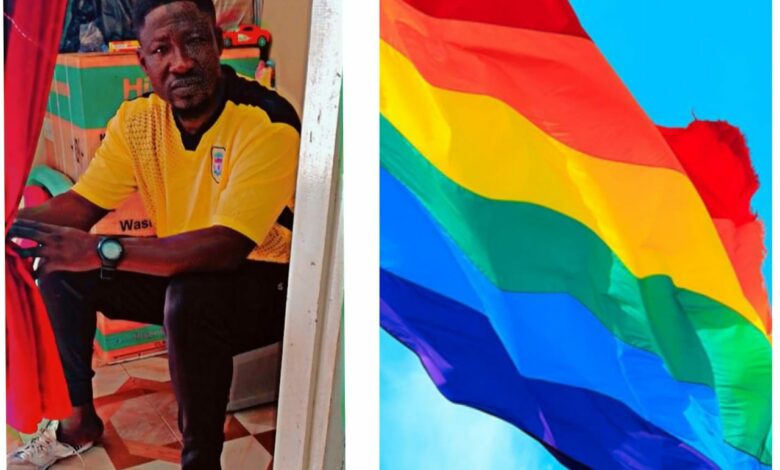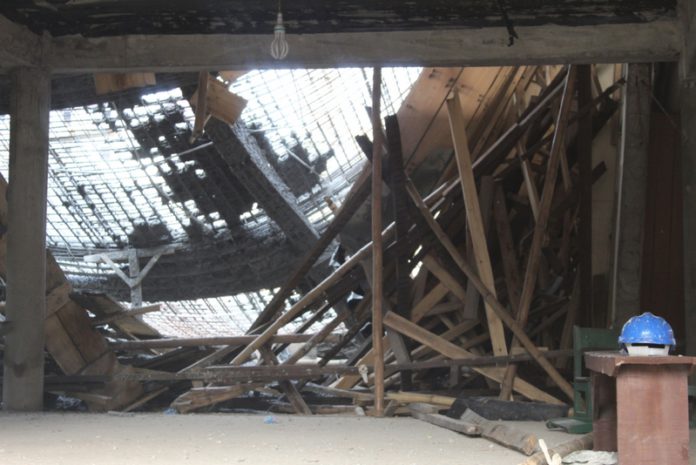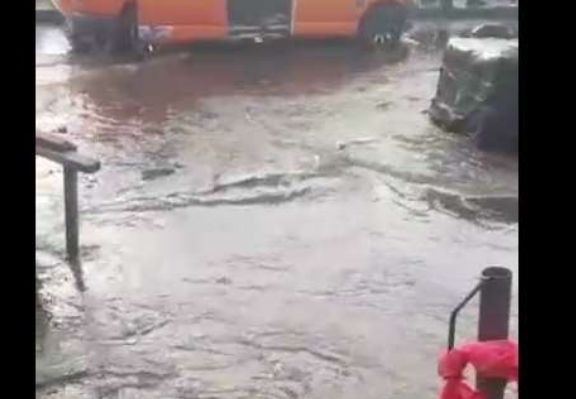Brutal Attack on LGBTQ+ Couple in Kumasi Sparks National Outcry

KUMASI, Ghana – October 14, 2024 — A violent homophobic attack in Kumasi has left one man dead and another seriously injured, intensifying calls for urgent action on LGBTQ+ safety and human rights in Ghana.
The incident occurred at the Noble House Hotel (popularly known as Yaw Hotel) near Manhyia, where Inusah Yaro and his partner, Ibrahim, were ambushed by a group of young men. According to eyewitness accounts, the attackers shouted slurs and accused the pair of “satanic behaviour” before launching a brutal assault.
Tragically, Ibrahim succumbed to his injuries, while Inusah survived with serious bruises and a dislocated shoulder. He has since gone into hiding, and no one knows his current whereabouts as he fears for his safety.
History of Targeted Harassment
This attack did not occur in isolation. It is believed to be linked to an earlier incident in June 2023, when Inusah was publicly outed at a nightclub in Asafo. A former friend had exposed his relationship with another man, triggering widespread public ridicule, threats, and ultimately leading his family to disown him.
Following the outing, Inusah lived in fear, moving frequently to avoid being targeted. Friends now believe his assailants had been monitoring him for months.
“This was not a random act of violence,” a close acquaintance said. “They waited for the right moment to strike.”
A Growing Pattern of Violence
This latest case reflects a deepening climate of fear for Ghana’s LGBTQ+ community. Over the past year, local human rights organizations have recorded a rise in harassment, assaults, and hate speech directed at sexual minorities.
The Ghana Police Service has yet to issue a formal statement on the incident. However, LGBTQ+ advocates are calling for a full investigation and immediate legal action.
“This is a test of our commitment to justice and human dignity,” said one Kumasi-based activist. “Whether or not you support LGBTQ+ rights, no Ghanaian deserves to be hunted and killed.”
Legal and Social Climate in Ghana
Ghana’s Criminal Offences Act (Act 29), particularly Section 104, criminalizes same-sex sexual activity. Though rarely enforced through courts, the law continues to embolden vigilante-style violence and enables widespread discrimination against LGBTQ+ individuals.
Many affected individuals, like Inusah, are unable to seek help from authorities due to fear of further persecution or legal repercussions.
“The existing laws create a culture where people think they have a right to attack others simply for being different,” said a legal expert in Accra. “It fosters impunity, and that’s incredibly dangerous.”
Reactions Across the Country
News of the attack has triggered nationwide condemnation on social media and in civil society circles. Several Ghanaian human rights groups have issued statements urging both government and religious leaders to denounce anti-LGBTQ+ violence and work towards inclusivity.
The case also rekindles debate over the proposed Proper Human Sexual Rights and Ghanaian Family Values Bill, currently before Parliament. If passed, the bill would criminalize LGBTQ+ advocacy, intensify legal penalties, and severely restrict the activities of organizations that support LGBTQ+ rights.
“We must ask ourselves what kind of society we want to live in,” said a human rights lawyer in Kumasi. “Because no law, no bill, and no tradition justifies the kind of brutality we’ve seen in this case.”
A Life Lost, A Warning for the Future
As Inusah struggles to process the loss of his partner and the trauma of the attack, his story serves as a sobering reminder of the dangers many LGBTQ+ Ghanaians face daily—often silently and in isolation.
For Ibrahim, whose life was cut short simply for loving another man, there is growing public demand that his death not be in vain.
“This should be a turning point,” said a statement from a local coalition of youth groups. “Ghana must rise above fear, hate, and ignorance. We must uphold the values of compassion, freedom, and human dignity for all.”
The attack in Kumasi is not just a crime—it is a national wake-up call. Until comprehensive protections are put in place, LGBTQ+ individuals in Ghana will continue to live in fear of being the next headline.





